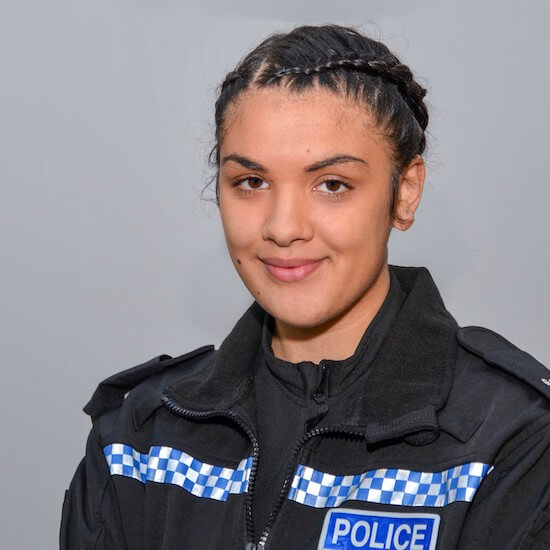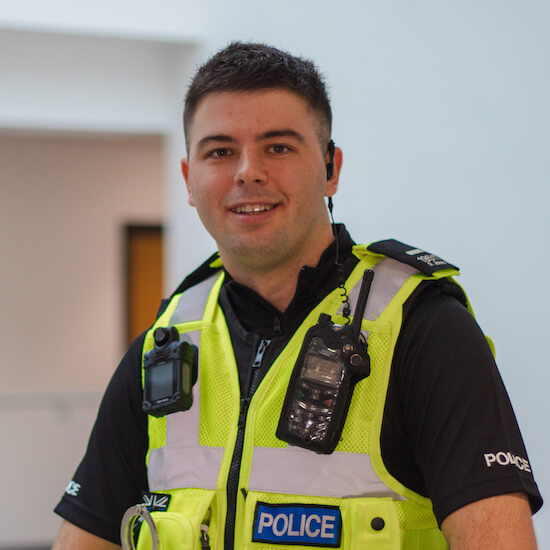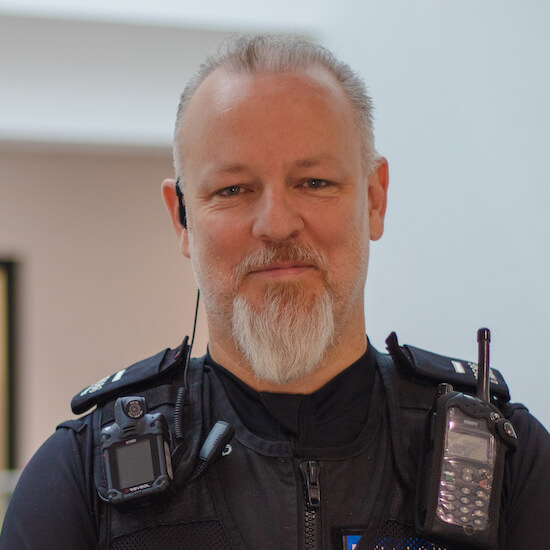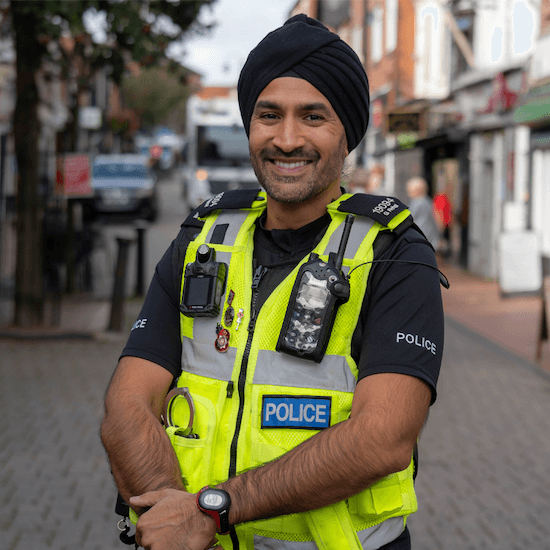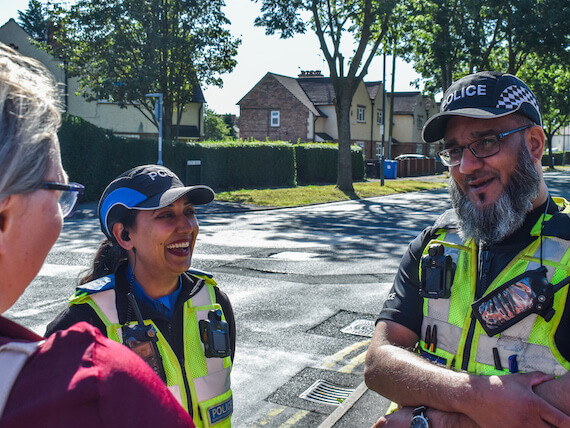
What you could be doing | Special Constables
THIS IS AN EXCELLENT OPPORTUNITY TO USE YOUR SPARE TIME TO HELP FIGHT CRIME
Special Constabulary
If you have some time to spare in your busy life, would like to help your local community and are interested in a career with the police, the Special Constabulary is the ideal place for you. Special Constables are dedicated individuals who, after a hard day at work in their regular job, still have the enthusiasm and drive it takes to devote some of their free time to help others.
Specials work alongside regular police officers and Police Community Support Officers to help police their local communities. They play a key role in crime reduction, detection and incident response by adding additional capacity to the services provided by regular officers. By providing a visible uniformed presence, Special Constables help to reduce the fear of crime and promote confidence within their local communities. Their position within the force is therefore very much appreciated and invaluable.
Course induction and expected start date - late Spring 2023
Our training course incorporates some self-study. Training will take place at our Force Headquarters Training Centre in Ripley. Further details will be made available which outlines the timetable and training content. Candidates must be available for all of the training dates.
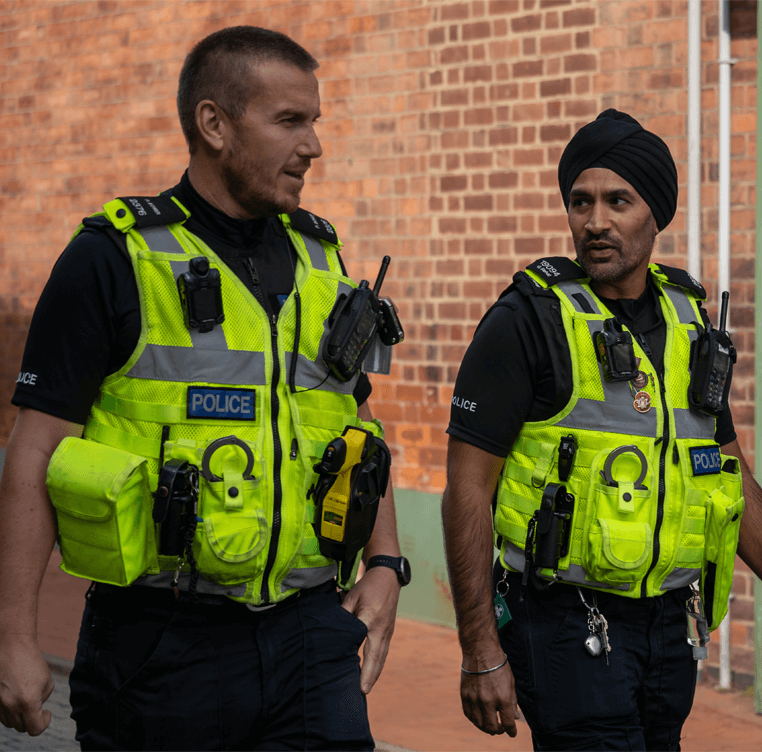
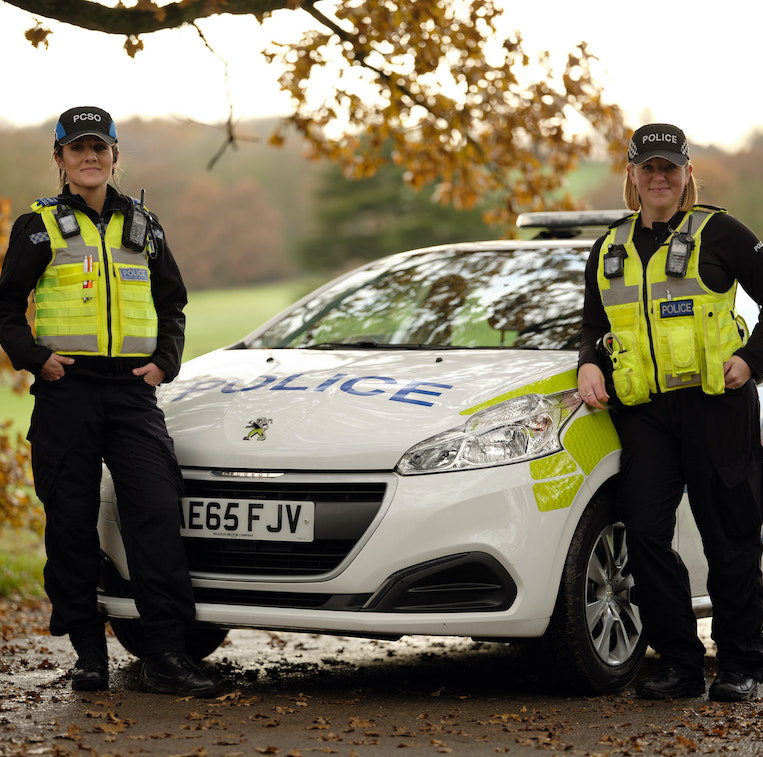
Why join the specials?
As a Special Constable in Derbyshire, not only will you make a real difference to people’s lives, you’ll have the chance to regularly challenge yourself and discover what you’re capable of. You’ll also be able to gain a real competitive edge, meaning you’re well placed in the employment market. You’ll lead a more varied and challenging life too, doing something new and exciting while learning useful transferable skills and gaining valuable experience. Not only this, you’ll meet lots of new people along the way.
There are excellent opportunities for progression too. Once a special constable has achieved their Independent Patrol Status (IPS) they’re able to apply for further development opportunities, such as special sergeant. This involves assisting in the operational effectiveness of the force by supervising, developing and supporting special constables. And, if you have what it takes, you could become a special inspector - someone who assists in the divisional management of Special Sergeants and Constables.

What do you need?
All applicants must be a UK Citizen, EU Citizen with EU Settled Status, a Commonwealth Citizen or Foreign National with no restrictions on your stay in the United Kingdom. Whether or not you were born in the United Kingdom, you should have lived here for the three years immediately preceding your application.
You must also be 17½ years of age or above on the date of submitting your application.
You’ll need to undergo a medical assessment to make sure you’re healthy enough for the intense training required. Your application will be rejected if you fail to meet the minimum acceptable medical standard for entry. The assessment will generally be carried out by our Occupational Health Team, who will check Body Mass Index (BMI), eye sight, colour vision, lung function and hearing. You will also be asked to complete a confidential medical history questionnaire. Depending on your medical history, we may have to contact your GP/specialist for further information. Once you’ve been declared medically fit, we’ll progress your application to the next stage.
You’ll need to pass a Job-Related Fitness Test (JRFT9) to check your fitness levels. This test determines whether you’re fit for the job and ready for Officer Safety Training, where you’ll learn to protect yourself and others. You’ll also be asked to take a running test (known as a multi-stage shuttle run or bleep test) to level 5:4.
A full UK/EU valid manual driving licence is not required.
You must declare any previous spent and unspent convictions and have a basic background check to get Security Check level clearance.
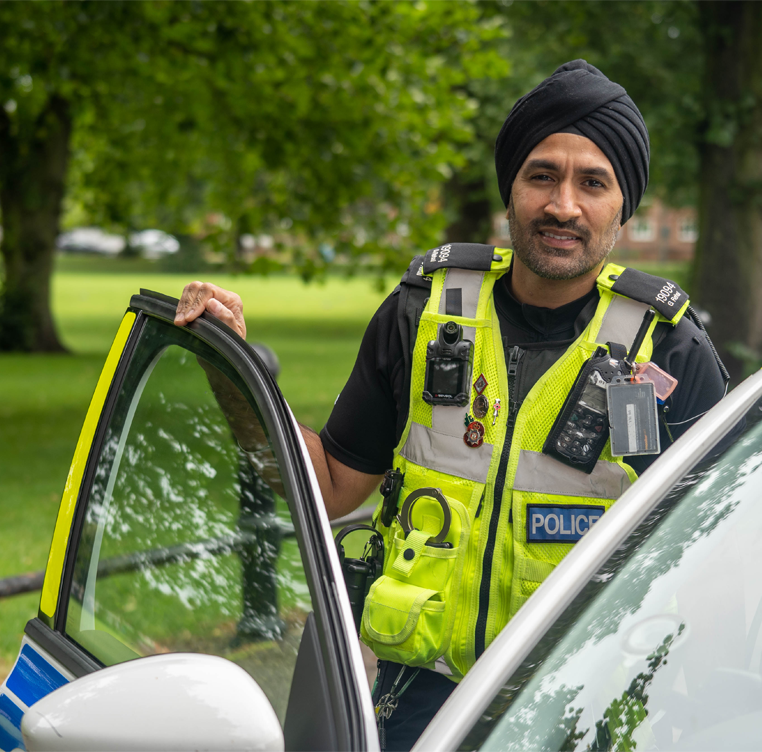
What skills are required?
Special Constables are no ordinary people. They have the drive and dedication to work with the Derbyshire Constabulary in their spare time, to help make their neighbourhoods a safer place. You’ll need to have good life skills and experience such as being:
- A quick thinking team player
- Able to cope with the unexpected
- Calm in a crisis
- An excellent communicator
- Tolerant and comfortable working within a team
- Respectful of others and able to resolve disputes sensitively and appropriately
- Good at planning and taking the initiative
- Honest, fair and impartial

What may hold you back?
You cannot apply if you:
- Have had an application turned down by a police force in the last three months at any stage of the national process. The national process includes Online Assessment, fitness test and pre-employment checks.
- Have been or are a member of a group or extreme political organisation such as BNP, National Front or Combat 18 that stirs up racial hatred and violence, a proscribed terrorist organisation/group or a similar organisation.
- Are waiting to appear in court or have any serious convictions or recent cautions, bind-overs or findings of guilt.
- Misuse drugs, solvents or anabolic steroids. But each case is considered upon its own merits.
- Have tattoos on your face, neck or hands that could cause offence. If you have a tattoo, you’ll be asked to provide a description and photographs of the tattoo. The nature, location, size, prominence and appearance of tattoos will be considered.
- Have any current County Court Judgements (CCJs) against you, or are the subject of an Individual Voluntary Agreement (IVA). If you’ve been registered bankrupt, you may only apply if it is at least three years since the date your debts were discharged.
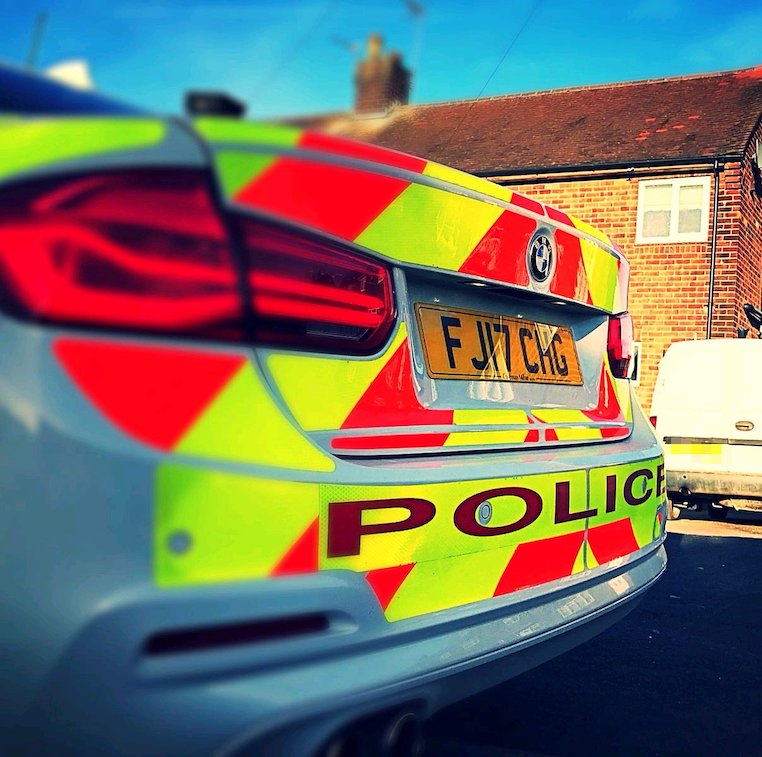
Investing in your development
Initial training programme
Initial training programme
As a Special Constable your time spent on training will be an invaluable experience building upon the skills and abilities you already possess. You’ll also develop new skills and abilities to enable you to deal with the wide variety of incidents that you may come into contact with.
In Derbyshire, all recruits must complete the Initial Training Programme, which includes first aid and self-defence. Throughout your training you’ll be guided by police training officers who will pass on their knowledge and advice gained from years of experience. You’ll be fully supported and assessed while being developed in this new area of your life.
Training will last for five months and will cover weekends and a number of evenings throughout the period.
Specials learning and development programme
Specials learning and development programme
Our training course is currently being reviewed and we anticipate that it will be a blended course, incorporating self-study, ‘virtual’ classrooms over the internet and classroom-based consolidation days at our force headquarters training school.
This may include consecutive weekend sessions and/or evening sessions. Further details will be made available which outlines the timetable and training content.
At the end of each of these courses there is a final exam and role play assessment centre.
The attestation
The attestation
At the end of the course you’ll have gained valuable experience and life skills, your confidence will be raised to new levels. You’ll be invited to attend an attestation evening where you’ll swear the oath of a constable. You’ll also receive your warrant card and a course certificate. You can invite your family and friends who have supported you throughout your course.
Employer support
Employer support
We know that some employers are willing to release their staff to attend these courses, so it may be worth approaching your employer - if you have one - and enquiring about time off to attend this course. The life skills you will acquire or develop are transferable into your professional discipline.
Continuous further development
Continuous further development
There are specialist departments in our organisation and you may consider an attachment to one of these in order to enhance your skills. Continuous development is important in the police service and you will be given opportunities to enhance the skills you wish to develop.
Meet some of our Specials
Frequently asked questions
As a special constable in Derbyshire, you are asked to commit an average minimum of four hours per week on a regular basis. However, if your other commitments allow, you can do more than four hours. Due to the investment required in every person who undertakes the specials training, we expect each candidate to serve a minimum of 12 months with Derbyshire Constabulary as a special.
We aim to process applications as quickly and efficiently as possible and will keep applicants informed at all stages of the process.
Our courses last a total of 24 weekends, with two weekends off.
No. All uniform, training and equipment are provided free of charge. There is no salary payable, but expenses for travel to and from duty are refunded along with a ‘boot allowance’ and meal expenses in some circumstances.
Special constables in Derbyshire get an annual allowance of £75.00 which is subject to a number of hours being performed over the course of the year. You will also be provided with your uniform and travelling expenses.
You will receive the same uniform and equipment as a uniformed police officer during your induction training.
As part of the role you may be required to give evidence, so eyesight and colour perception is important. The wearing of force-issued spectacles or contact lenses are permitted but the degree of eyesight correction must only be slight. Please call the recruiting team if you require further information or clarification.
Generally, you will be posted to a Local Policing Unit close to where you live. As a volunteer, we would not ask you to work anywhere against your will. Under some circumstances we may exclude you from duty within a certain area and ask you to help somewhere else, but a full explanation would be given.
Derbyshire Constabulary believes in giving everybody the same opportunity. You would receive no preferential treatment if you had once worked as a special. However, the training and experience you gain as a special can help to develop those skills that are needed to be a full-time regular police officer.
As special constables possess the powers and privileges of a regular constable even when not in uniform, it is necessary to minimise the risk that they may be pressed to abuse their powers whilst off duty. The Home Office has identified a number of occupations where there may be a conflict of interest with the role of special constables. In view of this, applicants who are employed in these capacities would not be eligible for appointment to the Special Constabulary. In addition, any serving special constable obtaining employment in an ineligible occupation should report to the chief constable and would be required to resign from the specials.
Some of the ineligible roles include traffic wardens, school crossing patrols, magistrates, clerks to Justice of Courts, licensees, security personnel and private detectives. A full list is available upon request by telephoning 0300 3301330.
All candidates' medical health is considered on an individual basis, in confidence with the Occupational Health Team. If you would like to get in touch with the medical health professionals in the Occupational Health Team using the 101 number, they will be able to offer individual advice.
All candidate's medical health is considered on an individual basis, in confidence with the Occupational Health Team. If you would like to get in touch with the medical health professionals in the Occupational Health Team using the 101 number, they will be able to offer individual advice.
Tattoos are not a bar to appointment. However, some tattoos could potentially offend members of the public or colleagues, or could bring discredit to the police service. It depends on their size, nature and location, and sometimes on the extent.
If you have tattoos on your face, neck, forearms or hands, you must indicate their location and provide at least two photographs of each tattoo. The first must be a close-up of the tattoo and the second must clearly show the location of the tattoo on your body.
Please ensure that you describe the tattoo and the wording, giving a translation if applicable. Describe any personal significance or meaning that you attribute to the tattoo.
We would only be able to give general advice in this area until an application reaches vetting stages. Not all cautions or convictions will lead to your application being turned down. However, failure to disclose any convictions or cautions will result in your application being turned down. In general terms you should not have any convictions or cautions in the last five years but all cases will need to be considered on an individual basis.
All candidates' medical health is considered on an individual basis, in confidence with the Occupational Health Team. If you would like to get in touch with the medical health professionals in the Occupational Health Team using the 101 number, they will be able to offer individual advice.
You must also be 17½ years of age or above on the date of submitting your application.
There is no upper age limit but you need to be in good health and be able to meet the standards for fitness and eyesight.
We do not ask for any educational certificates. We need people with good life skills and experience.

